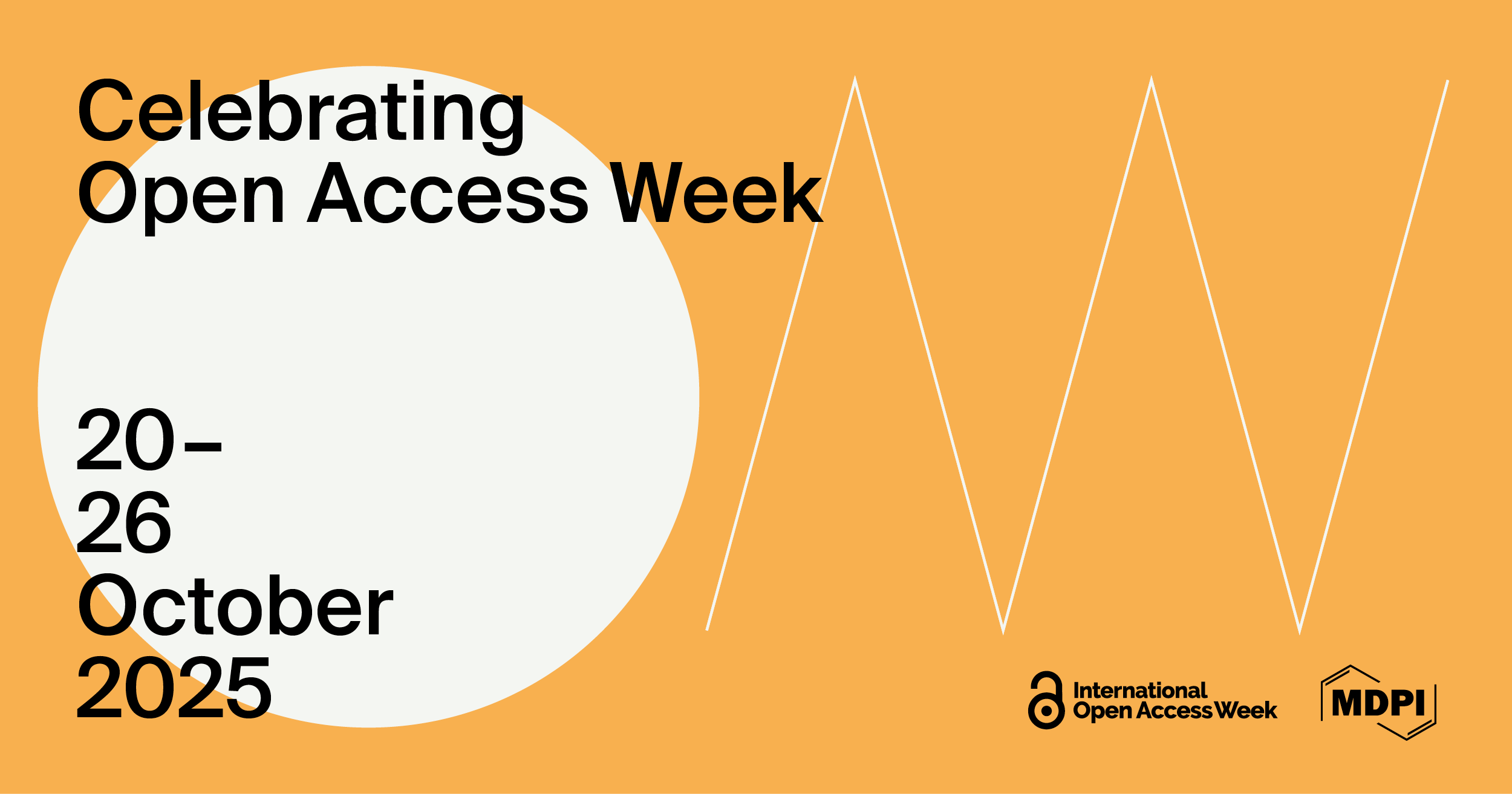Need Help?
Announcements
9 October 2025
Open Access Week 2025 – Who Owns Our Knowledge?

MDPI has been a driving force in scholarly publishing, helping authors and institutions worldwide transition to Open Access and making their research freely available to read, share, and reuse. While significant progress has been made, achieving 100% global Open Access remains an ongoing journey.
International Open Access Week (OAW), celebrated between 20 and 26 October 2025, highlights the importance of OA, sparking discussion around openness and the changing academic landscape.
This year’s theme (“Who Owns Our Knowledge?”) invites us to reflect on how researchers and the communities they impact can regain control over the knowledge they create. In 2024, OAW explored how community-driven initiatives can thrive within the Open Access model, and this year continues that conversation by examining ownership and participation in research.
Information about Open Access – from a Fully Open Access Publisher
With nearly 30 years of experience in academic publishing, MDPI has built extensive expertise in Open Access and open science, developing resources that help academics understand the ever-evolving publishing landscape.
One of our key goals is to support those who are new to Open Access, helping them understand its principles and benefits. At the same time, we aim to keep experienced researchers informed about new developments, policies, and best practices.
Just as importantly, we aim to give a platform to our research communities, helping their voices be heard in the wider conversation about openness, collaboration, and the future of science.
The MDPI Blog brings this expertise to life, featuring a wide range of resources updated monthly. It provides free, accessible information to help researchers make sense of the changing academic world.
Resources on Open Access:
- All You Need to Know About Open Access [LINK]
- Why Open Access is Important [LINK]
- Open Access Policies and Mandates Around the World [LINK]
Where Open Access Fits into Open Science
Open Access is a big part of Open Science, which is all about making every step of research more open and accessible, from sharing data and methods to improving transparency in peer review and research evaluation.
If Open Access focuses on opening up research results, then Open Science goes a step further by opening up the entire research journey. It’s about making science more transparent, collaborative, and inclusive, so that knowledge can be shared and built upon by everyone.
Preprints.org Webinar │ “Who Has a Voice in Open Science?”
On 13 October 2025, Preprints.org hosted a webinar titled “Who Has a Voice in Open Science?”, exploring what meaningful participation looks like in the creation and sharing of knowledge.
During the session, advocates from the Open Science community and platform leaders discussed how diverse perspectives, together with the growing role of preprints, can help build a more inclusive and collaborative research culture.
Missed the webinar? You can watch the recording [here].
Keepers of Knowledge: The Institutions Defining Science Today
Open research depends on strong institutions that set standards, define best practices, and guide how research is conducted. Universities, research institutes, libraries, scholarly societies, funding agencies, and international research platforms act as the keepers, not the owners, of knowledge.
These institutions provide the stability, guidance, and support that research needs to thrive, ensuring that new findings are reliable and trustworthy. Through global collaboration, they support research practices that respond to the needs and ideas of scientists and communities worldwide.

Open research works best when society trusts the scientific process and the institutions that support it.
Empowering Researchers, Serving Society
At the same time, researchers need the freedom to pursue work that benefits society, which requires trust from the public, policymakers, and funders. Maintaining this trust is a shared responsibility: scientists uphold it by being transparent, following ethical standards, and reporting findings honestly, while society helps protect research from undue pressures that could influence its direction and success.
When institutions are strong and trust is maintained, open research can flourish. It enables collaboration, broad access to knowledge, and innovation that benefits communities worldwide.
(Not-So) Fringe Ideas, Nobel Discoveries
Nobel Prizes honor discoveries that change the world, but major breakthroughs rarely happen alone. They grow from researchers working in trusted institutions, following high standards, and collaborating across borders. Yet, even the boldest, Nobel-worthy ideas often start on the fringes of accepted science, and a culture of openness is what lets them develop into the next big breakthrough.
Open access makes this even more powerful, allowing scientific contributions to gradually shape and fuel the next big discoveries of tomorrow. Strong institutions, trust in science, and an openness to diverse approaches are some of the elements that make these breakthroughs possible.
At MDPI, we are proud to have been entrusted over the years with the distribution of works by more than 40 Nobel laureates. Among the 2025 Nobel Prize winners, three have published articles in MDPI journals during their careers: Shimon Sakaguchi (Nobel Prize in Medicine, University of Osaka), John M. Martinis (Nobel Prize in Physics, University of California, Santa Barbara, USA), and Omar M. Yaghi (Nobel Prize in Chemistry, University of California, Berkeley, USA).
As we reflect on "Who Owns Our Knowledge?", one thing is clear: knowledge thrives when it’s shared. From trusted institutions and open research practices to new voices joining the conversation, every step toward openness strengthens the global research community. MDPI will continue to support that journey, helping researchers, institutions, and readers everywhere take part in building a more connected and collaborative world of science.




